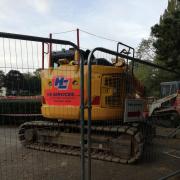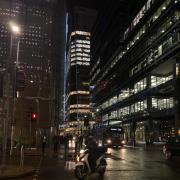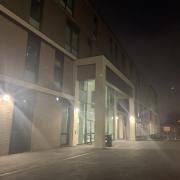
Over 800 libraries in Britain have closed in the last decade, due to budget cuts. More often than ever people turn to the internet for information rather than encyclopaedias, and literature has already entered the digital world through e-book copies and audiobooks. So what place do libraries have in London today? Have they become redundant?
I visited the Wimbledon library to find out more by interviewing a Librarian.
I asked him why he thinks libraries are important today, and he told me:
“Reading is important. It’s the cliché answer but reading regularly is good for you emotionally and mentally.”
With the number of job centres that are closing, the library is one of the last places people can go to, to access public information and fill in online job applications. A significant amount of people has been left behind by technology which is why investments into courses for IT and coding are important at the library.
When asked what sort of people come to the library on a daily basis, he replied,
“All sorts of people. Mostly people over 55, particularly for computers. Professionals come to the café, and students come in to revise.”
He explained that while there are a lot of children under 11, due to “story-time” and “rhyme-time” events that are held in the library 6 days a week, the demographic that’s missing is between the ages of 12-18.
“Partly because they’ve grown up with the internet and are used to finding information through there, but also because libraries in secondary schools tend to have enough of the same books. What sometimes happens is that after 18, once they leave school, they return to the library to find information.”
This shows that young people continue to rely on libraries for their education, even just as a quiet space to study. Many youth centres have been shut in London over the past couple of years, and libraries could help to provide the spaces that young people are missing to meet up and learn together in a safe environment.
I then asked how he thinks the library might change in the future, with the development of technology and increase in e-books.
“It’s already changing - 97% of issue returns are done at the self-service checkouts. The e-library is bigger than the physical library. We will increasingly cater to that. One way we’re carrying on is by diversifying – there is a café, art space, offices upstairs. It’s why we have a sound recording studio.”
He stated that people overlook how many events take place in the library, from employment support, reading support, IT support, yoga and even wrestling.
“It’s worthwhile to look at.”
Another misconception people have, he told me, is that what you see in the library in terms of books is all there is. In reality, it is connected to other libraries in London and the e-library is extensive, so you are very likely to find any book you are looking for if you make an enquiry.
To conclude, the Wimbledon library continues to adapt and thrive alongside technology, but it’s just one of many in London. Smaller libraries with less financial support may find it more difficult to keep up with changing times. It’s therefore vital we appreciate how important it is to have places where people from whatever background can access knowledge freely, a human right that libraries physically embody. Not only are they a place to read, but also a place where you can be part of the community.
In the words of Hermione Granger from the best-selling 'Harry Potter' series, “When in doubt, go to the library.”.





























